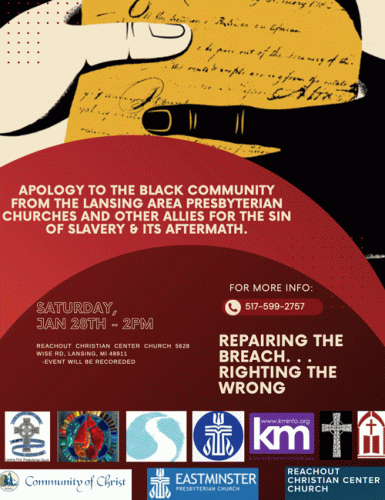The Rev. Dr. Larry Cuthill of the Central Florida Presbytery, has provided a draft letter in support of our Cuban sisters and brothers. One of the most important things that we can do to support them is to put pressure on our elected officials to change the policy of the United States. I have slightly revised the letter to allow for one that doesn't reply to a particular president as the US policy changes.
For over sixty years the United States has pursued a failed policy of embargo against the people of Cuba. While the stated goal has been to hasten regime change, the practical goal has been to impoverish the people of Cuba. A review published by Science in 2010 researched the effect of the embargo on the health of the Cuban people. The study concluded that the sanctions altered the medication supply and likely had serious consequences to their health. The sanctions have resulted in a 90% decline in trade of food and medicine.
Several years ago, I traveling to Cuba with the Cuba-Mission Partnership of the Central Florida Presbytery. It was a privilege to meet the people of Cuba. They are resourceful, resilient, embodied so much happiness and love for life. They are highly educated and the country has a high literacy rate. However, the impact of the embargo in impoverishing the nation is overwhelming. The impact of the embargo on the population is an example of cruelty that I found shocking. Most people in the United States will never travel to Cuba and see how devastating this policy is having on our neighbors to the south.
The bottom line is that the policy has not done anything to bring about regime change but has instead punished the people of Cuba. Therefore, I believe it is time to end this policy and open up Cuba to change.
I will add a few links at the bottom to other sources that have highlighted this terrible policy. I encourage everyone who cares about justice in our world to write your representative and elected leaders asking for the removal of the embargo against the Cuban people.
Rev. Omar R Gonzalez
The Addressee format is as follows:
The Honorable__________________
(Office number) ( Office Building)
Washington, D. C. 20510
Dear Senator\Dear Representative:
I write to you as a member of the Presbyterian Church U.S.A. and Central Florida Presbytery because of the continued tightening of restrictions with our close neighbor to the South, Cuba. As one who has had involvement in our church's relationship with the Reformed Cuban Church, I am deeply concerned about the negative effects this will have on the ordinary people of that country.
Today they live on the equivalent of $80 a month per person. They survive harsh circumstances by banding together and sharing, demonstrating remarkable courage and faith. For our government to roll back recent progress that allowed cruise ships, certain business and farm relationships to go to Cuba is a serious blow. Further, it is proposed to restrict sending money to relatives in Cuba, which makes a major difference in their meager quality of life.
Another negative is it strengthens the Cuban government's will to resist the efforts of the U.S. to exercise influence and control Cuba. How can we justify these strong arm efforts which only hurt the populace. For over 50 years we have pursued a policy that has failed. Shall we continue to do so knowing it only makes things worse.
I urge you to look into this matter and do what you can to enable peace and reconciliation with these wonderful people. I remain in awe of the fact that after many trips we have always found them to be hospitable and genuine in their faith and practice. May God bless you and lead you in the important work you do.
Faithfully yours,
(this letter has been slightly altered from its original to fit the current context. The original letter can be seen on the Central Florida Presbytery Cuban mission partnership linked below. Letter was provided by Rev. Dr. Larry Cuthill)








